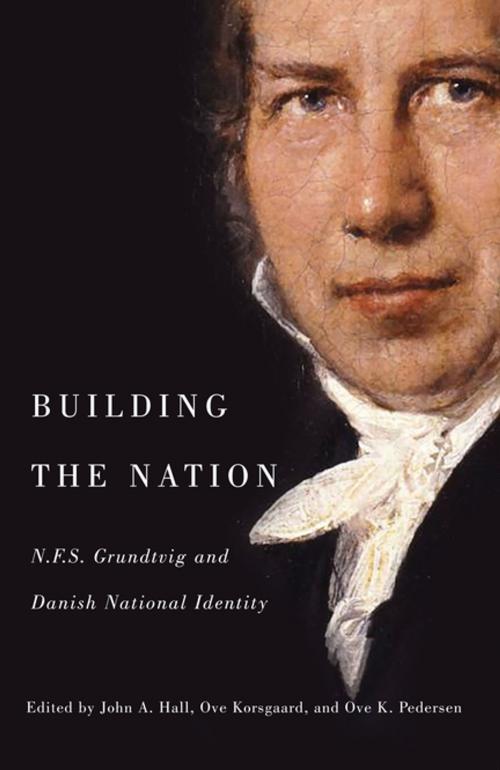| Author: | ISBN: | 9780773596320 | |
| Publisher: | MQUP | Publication: | October 1, 2014 |
| Imprint: | MQUP | Language: | English |
| Author: | |
| ISBN: | 9780773596320 |
| Publisher: | MQUP |
| Publication: | October 1, 2014 |
| Imprint: | MQUP |
| Language: | English |
Denmark became a nation amidst the turbulence of the nineteenth century, an era plagued by war, bankruptcy, and territorial loss. Building the Nation is an insightful study of this formation, emphasizing the crucial role of N.F.S. Grundtvig, the father of modern Denmark. Persevering through years of humiliation, internal conflict, and occupation, Denmark now boasts one of the world's most stable and democratic political systems, as well as one of its richest economies. From disaster to success, Building the Nation emphasizes the role of national icons and social movements in the formation of Denmark. The poet, political philosopher, clergyman, and founding father N.F.S. Grundtvig is compared to Rousseau and Durkheim in France, to Herder and Fichte in Germany, and to other great thinkers in the United States and Ireland. During his lifetime, the kingdom of Denmark transformed from monarchy to democracy and moved from agrarianism to a modern economy - evolutions to which Grundtvig himself contributed. He has become a fundamental and inescapable reference-point for discussions about nation, democracy, freedom, religion, and education in Denmark and abroad. Situating Grundtvig in both the history of Denmark and the intellectual history of nineteenth-century Europe, Building the Nation argues for the centrality of his influence in the making of modern Denmark, as well as the continuing influence of his work.
Denmark became a nation amidst the turbulence of the nineteenth century, an era plagued by war, bankruptcy, and territorial loss. Building the Nation is an insightful study of this formation, emphasizing the crucial role of N.F.S. Grundtvig, the father of modern Denmark. Persevering through years of humiliation, internal conflict, and occupation, Denmark now boasts one of the world's most stable and democratic political systems, as well as one of its richest economies. From disaster to success, Building the Nation emphasizes the role of national icons and social movements in the formation of Denmark. The poet, political philosopher, clergyman, and founding father N.F.S. Grundtvig is compared to Rousseau and Durkheim in France, to Herder and Fichte in Germany, and to other great thinkers in the United States and Ireland. During his lifetime, the kingdom of Denmark transformed from monarchy to democracy and moved from agrarianism to a modern economy - evolutions to which Grundtvig himself contributed. He has become a fundamental and inescapable reference-point for discussions about nation, democracy, freedom, religion, and education in Denmark and abroad. Situating Grundtvig in both the history of Denmark and the intellectual history of nineteenth-century Europe, Building the Nation argues for the centrality of his influence in the making of modern Denmark, as well as the continuing influence of his work.















